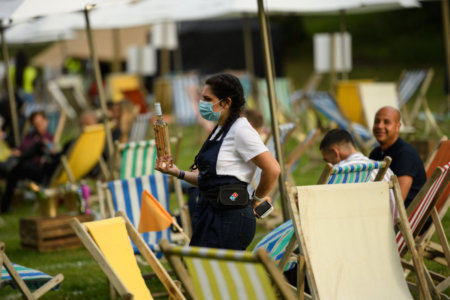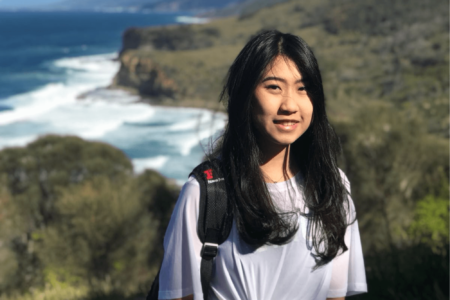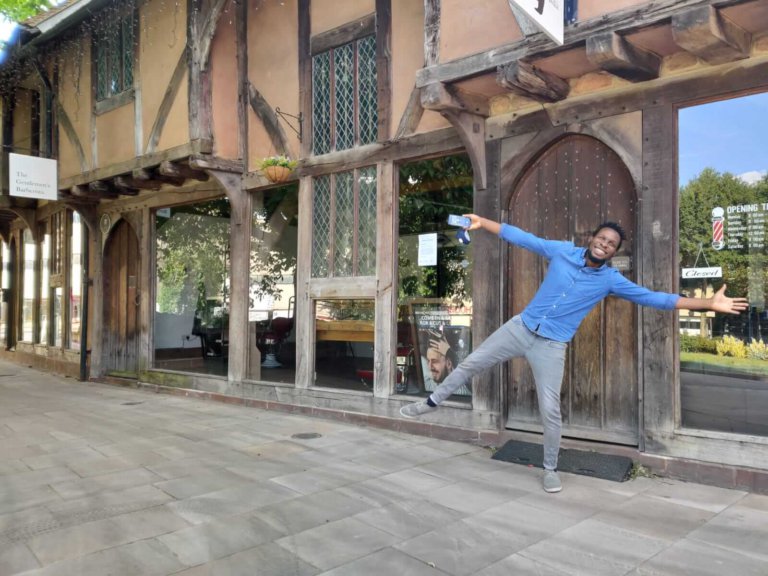
Tamunotonye Harry’s project is simple, but has a potentially life-changing impact in his home country Nigeria. The Nigerian-born Coventry University graduate plans to provide an affordable alternative to commercial health insurance using an online platform that allows groups of people to share risk and cost between them to cover a basic healthcare package.
Where the developed world barely blinks an eye whenever a woman goes into childbirth or someone gets diarrhea, that’s not the case for Nigeria. With the majority of the population living in absolute poverty, hundreds of health emergencies — many preventable or can be treated — turn fatal daily. Most cannot afford to go to hospitals — only 1% of the population have insurance.
Harry is determined to help the people of Nigeria to cope with and treat several illnesses including malaria, typhoid fever and stomach ulcers. His platform, which gives lower-income groups a better chance of accessing healthcare, is backed by Coventry University’s Barry Gidden Fund. Each year, two grants of 1,000 pounds are awarded to student software and engineering-related projects that affect positive social change. Harry is able to form a team to conduct further research and produce a prototype of his platform thanks to this.
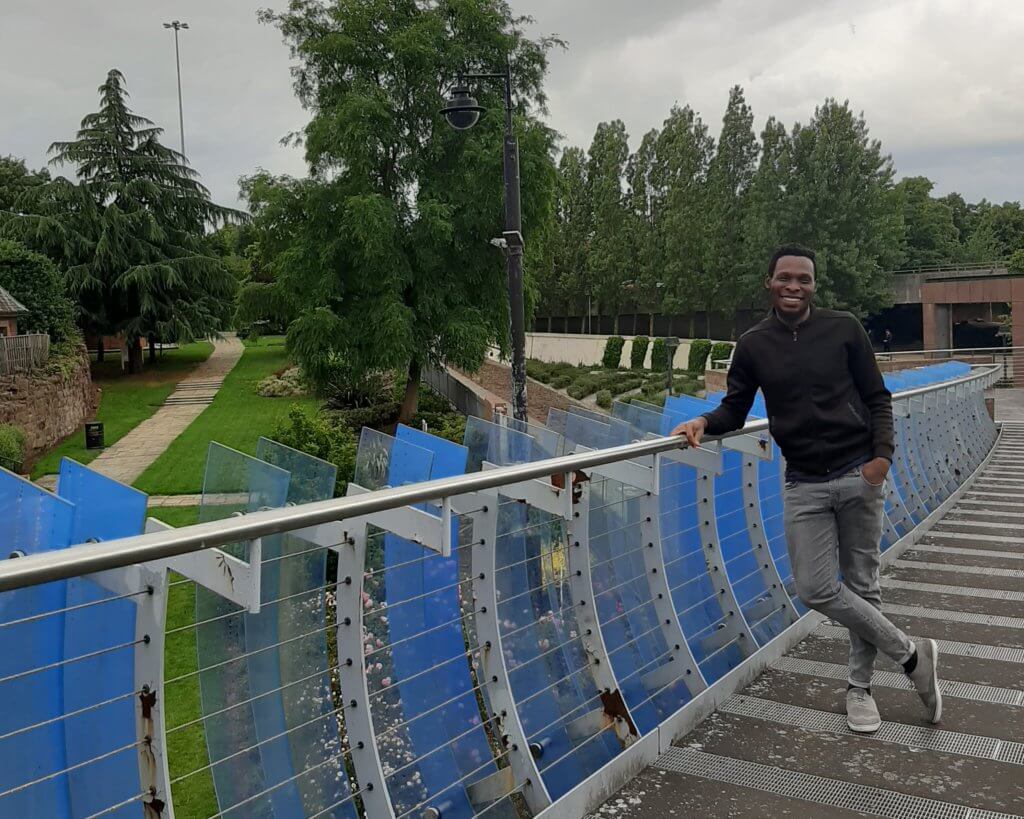
“Coventry University is a popular destination for Nigerians and the uni community supports diversity,” he says. Source: Tamunotonye Harry
“I realised that the family system in Nigeria is changing and without health insurance, one health issue of any member of a family can drag the rest under the poverty line due to exorbitant expenses in private and public hospitals,” Harry says on Coventry University’s news page. “It’s a very real concern that could affect anyone. That fear made me start thinking about an alternative to commercial health insurance which has a low penetration rate in Nigeria and technology can be that bridge.”
Below we talk to this Coventry University graduate about his life in the UK, his master’s degree and why he chose to focus on healthcare:
What made you choose to study global healthcare management? Is there a personal backstory behind this?
Learning is a hobby for me which made it a difficult choice. For a physiology graduate, the natural option would be a master’s in public health due to its popularity in Nigeria.
At the time, I really liked technology and management so I learned data science online with scholarships with Udacity (online course platform). Luckily, I got a government scholarship to study in the UK and I went straight for the global healthcare management programme. This took care of the desire of learning management where I’m still on a learning curve.
Why did you choose to pursue this course at Coventry University in the UK?
Coventry University is a popular destination for Nigerians and the uni community supports diversity. The education standards around the UK are a bit similar so it wasn’t about being at a prestigious uni.
It was a choice of choosing one where I could thrive with the available resources I had and it was something I don’t regret. I didn’t come all the way to the UK to eat food but with a diverse community in Coventry, I tried lots of Indian, Ghanaian and Nigerian food. Lovely memories.
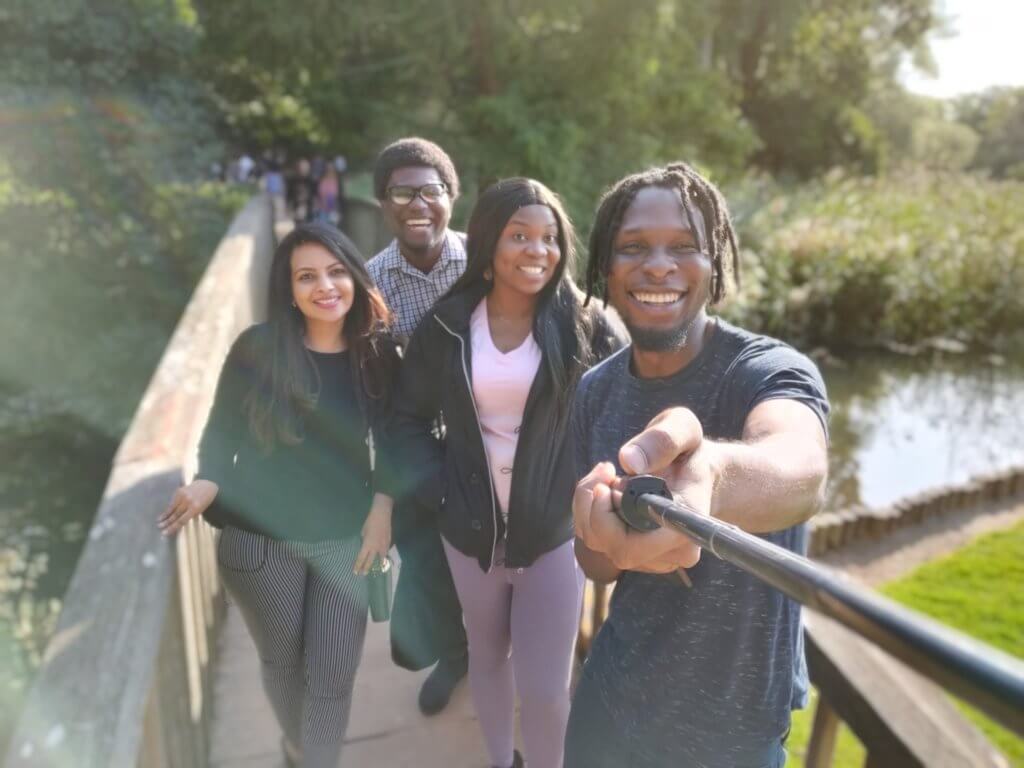
He gives credits to the University of Port Harcourt in Nigeria and Coventry University in the UK for support in learning. Source: Tamunotonye Harry
Do you think it would have made a difference if you studied at a local institution?
Of course. The Nigerian educational system is not at its best at the moment. Experiencing it as a student and a child of a lecturer, it’s difficult for students and lecturers to function optimally.
At Coventry University I received more support for learning which made it easier to attain a distinction. However, I will give credit to the University of Port Harcourt in Nigeria for helping me become more self-reliant and confident in the face of adversity.
What was your most memorable class?
In our Policy and Politics seminar class we were divided into two groups to debate how governance is needed in healthcare. We were meant to go against this notion while the other group was meant to support it.
At first, we felt like we didn’t have good points but immediately (when we started the debate) we understood the logic of the other team. Then we turned their logic around and counteracted their arguments and surprisingly won.

“I also hope to do an MBA or a PhD in AI for healthcare,” he tells us. Source: Tamunotonye Harry
Do you have any fond memories with teachers at Coventry University?
I have fond memories of all my lecturers but especially my project supervisor. I came up with some technology topic ideas for the management of diabetes and talked about health insurance.
He cut through my ideas like “Zorro” (fictional character of swordsman) but during that day, I finally learned how to investigate my own ideas and solutions that have the potential to solve existing problems. I smiled all the way home that day because his feedback changed the way I view things.
What’s one thing from home you miss while studying abroad?
Due to the pandemic, it was really hard for me to study as the country was locked down and it was difficult to listen to all the negative news last year. I had lots of burnouts and navigating everything as an introvert was a little bit difficult. This made me miss my family (especially my mother) so much. I don’t think I missed anything else because Coventry has become a home much like many Nigerians like myself.
What skills have you gained from your course that you use now?
The ability to think “critically” (it was a word that was stressed to me a lot and now I see it everywhere I go). Critical thinking was part of everything we did and preparations for seminars and essays because of great lecturers.
Do you plan to progress further? What do you plan to do with this degree after graduating?
I graduated in April this year so I’m currently working on a personal project around health insurance in Nigeria. I was fortunate to get funding for this project and hopefully soon my team and I will be able to reveal all the hard work we’ve put in since January.
I also hope to do an MBA or a PhD in AI for healthcare. I need a scholarship to make this happen but in the meantime, I will work on personal projects and ideas to see how far they will go.
Tell us a bit more about your project with the Barry Giden Fund. Why do you think there should be more focus on healthcare in Nigeria?
The project seeks to question the principles of health insurance in Nigeria and its mode of delivery. Is it human-centred and value-based? We are attempting to present other options to health insurance via a technology-based solution.
We are not anti-health insurance but we want to start a discussion around finding other options that take into consideration the context of the country (in this case, Nigeria) when it comes to funding healthcare.
The productivity of a country is based majorly on its people and when they are not healthy the economy of the country suffers. Investment in the healthcare system is suboptimal which leads to diminishing returns that create more problems for the country in the future. Healthcare is integral to the growth of any nation so it needs to be prioritised.
Do you have any advice for international students looking to go to the UK?
Make good use of the time you have because time runs out fast and everyone becomes strangers very quickly. Meet new people, bond with your classmates, lookout for opportunities and engage with your course. I’m sure you will do well. I’d like to see you win and hear your stories as well.








